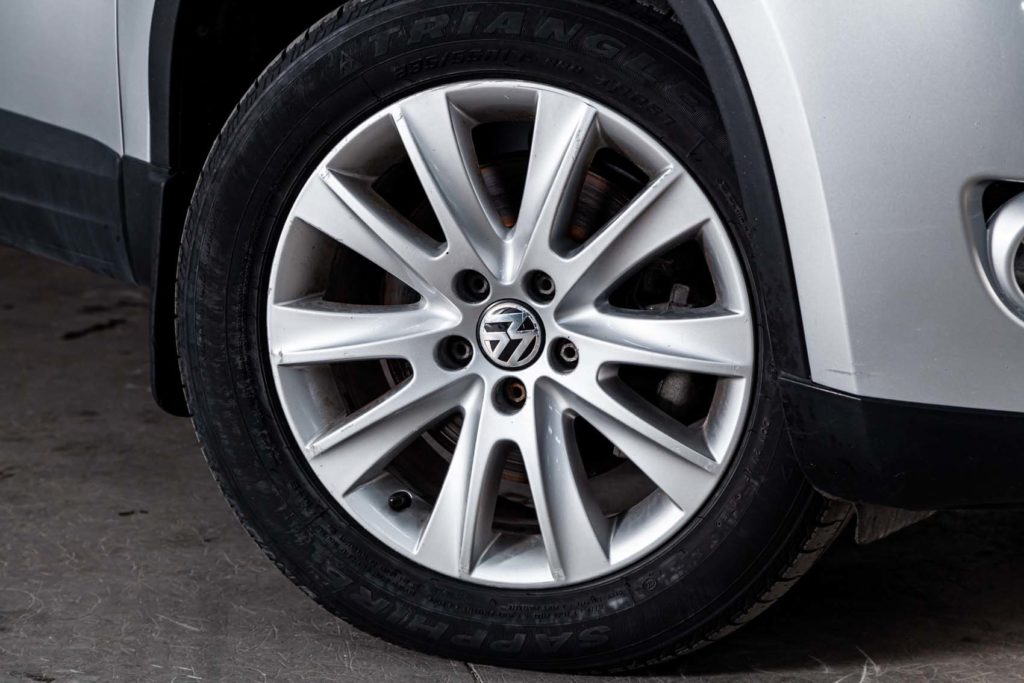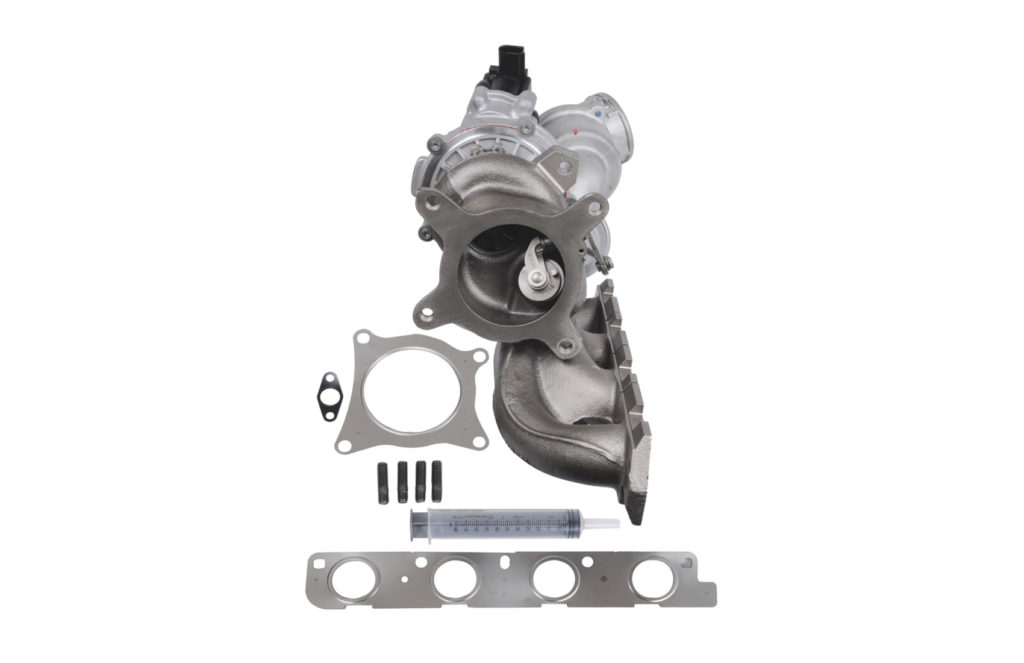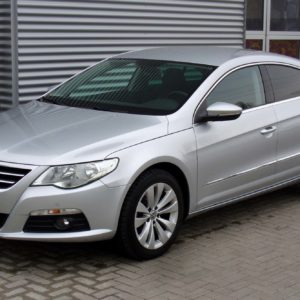Superb agility and fuel efficiency in a compact crossover SUV are just some of the great reasons to choose the Volkswagen Tiguan. While the newest model years get plenty of high-tech features, older vehicles remain an excellent choice with good resale value. CarEdge.com notes that the price of a 5-year-old Tiguan in good condition will have only depreciated by 44%.
Are Volkswagen Tiguans Reliable SUVs?
The Tiguan earned average scores on most reliability ratings. RepairPal.com gives it 3.0 out of 5.0, ranking it 26th out of 26 SUV models. Most owners will find themselves bringing their SUV to the auto repair center more often than expected for such a vehicle.
However, all models of the Volkswagen Tiguan boast good fuel efficiency, with the latest model years giving excellent miles per gallon for an SUV. Combined with its intuitive tech features, the Tiguan can serve you well for a long time if you take good care of it. Like many VW models, it can rack up at least 100,000 miles with regular maintenance and repair.
Top Volkswagen Tiguan Problems
Ever since its first unit rolled out in 2009, the Volkswagen Tiguan has seen its share of reliability issues. The exact problems and their frequency may change between model years, with the newer vehicles generally having fewer issues. Below are some of the more prevalent problems across Tiguan model years:
Transmission Problems
Some owners of the 2019 Volkswagen Tiguan have reported that their transmission suddenly hard shifts up or down. The problem typically surfaces after driving for at least half an hour straight.

Meanwhile, many drivers of the 2018 Tiguan complained that their SUV suddenly hesitates while they’re stepping on the accelerator pedal. In some cases, accelerating leads to clunking sounds that get worse at higher speeds. The engine may even stall outright, further increasing the risk of an accident. Some owners also report grinding noises coming from the transmission, which is never a good sign.
Brake Issues
The National Highway Traffic Safety Administration (NHTSA) has recorded multiple complaints about the service brakes of various Volkswagen Tiguan model years. On many occasions, the brakes took too much time to engage after the driver stepped on the pedal or didn’t deploy at all. Either way, the malfunctioning brakes increased the risk of collisions, especially when the vehicle was driving at high speeds.

In newer year models like the 2019 Tiguan, the automatic braking system and frontal brake assist could malfunction in various ways. They either engaged on their own without warning or didn’t work at all. One of the possible reasons behind the issue is a faulty braking sensor sending inaccurate readings to the automatic brakes, leading to their erratic performance.
The Tiguan’s anti-lock braking system and electronic stability control could also fail without warning. Some owners of the 2012 Volkswagen Tiguan have reported that the ABS and ESC failed alongside other electronic parts, effectively crippling their vehicle.
Other related problems reported by Tiguan owners include the brake parts wearing out faster than normal and unpleasant vibrations. Replacing the faulty parts usually resolves the issue, although some problems tend to recur despite thorough repairs.

Electrical Problems
One of the electronic safety features of the 2018 Volkswagen Tiguan is a lane assistant, which scans road markings and helps keep the SUV in the right lane. However, it can make mistakes when reading the lines on the road and unexpectedly steer the Tiguan out of the lane. Many owners have reported that happening to them alongside getting a “lane assistant unavailable” message without any explanation.
There are other optional safety features available to the 2018 Tiguan, such as adaptive cruise control. But like the lane assistant, they can also malfunction when least expected. Some drivers have reported that their front collision avoidance function sometimes triggers prematurely, even when the SUV is still a safe distance away. If there is another vehicle behind the Tiguan, this can result in a rear-end collision.
Some Tiguan owners have also reported that their SUV’s electronics tend to switch on even when the key isn’t inserted into the ignition. This drains the battery, leaving their vehicle without enough juice left to fire up the ignition system.
While earlier model years have simpler electronic systems, they also have their share of electrical problems. The ignition coils of the 2011 Volkswagen Tiguan can fail prematurely. And if the coils fail while driving at high speeds, the engine can stall abruptly and put the driver in danger.
Engine Issues
The Volkswagen Tiguan also develops many issues related to its engine. The intake manifold could break down prematurely, while the water pump can require multiple replacements before it logs 20,000 miles. Some owners have also reported engine oil-related problems, such as springing a leak in its main seals and using up too much oil. Others have complained about a bad turbocharger, which may decrease the power produced by the engine.

In 2009-2011 Volkswagen Tiguan models, the timing chain and its tensioner are prone to wearing out prematurely or without warning. A faulty timing chain tensioner can cause stalling, while a timing chain can outright wreck the engine if it slips or operates roughly.
Whether you’re getting a new or used unit, the Volkswagen Tiguan will meet most of your expectations and requirements for an SUV. Get the most out of your ride by reading up on the mechanical issues reported for the year model you own or are planning to get.
Airbags
The 2010 to 2014 models were recalled because of an issue that may cause a loss in electrical connection to the driver’s frontal airbag. Debris contamination in the airbag clock spring may result in a tear in the cable that keeps the airbag powered, which may prevent the airbag from deploying in a crash.
Winterized Fuel Issue
Certain Tiguan models from 2009 to 2014 were recalled because bubbles formed in the fuel system that resulted in stalling. The issue occurred when winterized fuel was used.
Any information provided on this Website is for informational purposes only and is not intended to replace consultation with a professional mechanic. The accuracy and timeliness of the information may change from the time of publication.




















